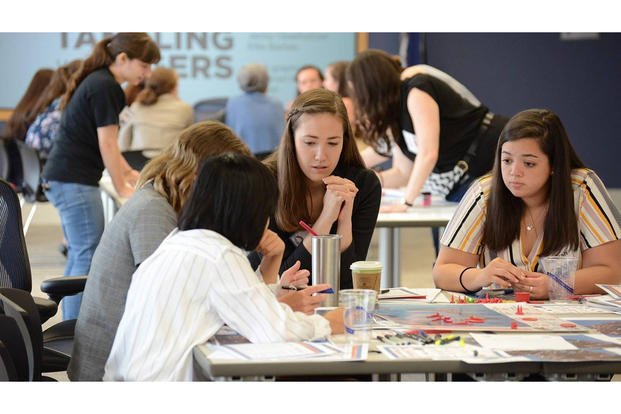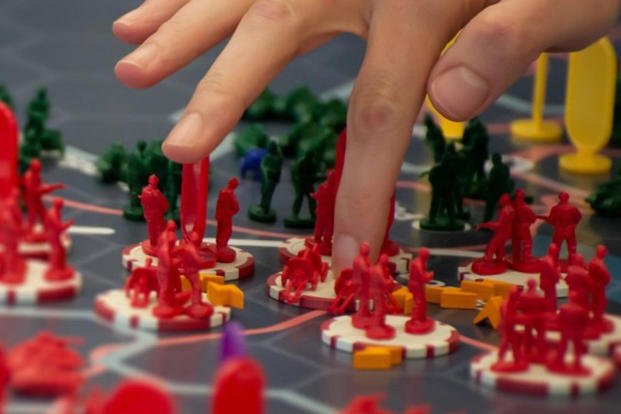Though women have made a lot of progress in recent years, especially in the military and defense sectors, there are still very few women in senior positions in the U.S. military-industrial complex. Only a third of the senior positions at the Department of State are women, and less than a fifth hold such positions at the Defense Department.
That's why a Cold War-era think tank agreed to put women in command of a large wargaming exercise. Were women able to prevent an all-out nuclear conflict on the Korean Peninsula?

The RAND Corporation, a global, nonprofit policy research center created in 1948, wanted to bring a much-needed female perspective to the fields of defense policy and national security. The group of women are in age groups ranging from their late teens to early 20s, and most have never had any kind of wargaming or strategy experience before. Still, they are leading command discussion about scenarios facing troops in a war with North Korea in a conference room overlooking the Pentagon.
In the scenario, the Democratic People's Republic of Korea has a long-range missile that can target locations on the U.S. West Coast. The North threatens "grave consequences" if the United States and South Korea conduct their annual joint exercises to practice their responses to a North Korean invasion. The warning from the DPRK is the same the Stalinist country gives the Southern Allies every year. This time, when the allies begin their drills, the North fires an artillery barrage into Seoul. South Korea responds with missile strikes. The new Korean War is on.

RAND uses wargames like this one to study almost every national security scenario and has since the earliest days of the Cold War. It was the RAND Corporation who was at the center of the 1967 Pentagon Papers case that determined why the United States had not been successful in Vietnam. It's very unlikely this is the first time RAND has wargamed a war between North and South Korea, but it's the first time young girls were given command of the allied forces.
That isn't to say no women have wargamed at the Pentagon. Many of the women who have participated in wargames at the highest levels of the U.S. government, including in the Pentagon, often admit to being the only woman in the room. RAND wants to create a pipeline for young women to be able to participate in such wargames – as professionals.
In the game, the women determine where to deploy infantry, how to stop North Korean advances, and even when to use tactical nuclear weapons, all under the advice and counsel of RAND's expert and veteran women advisors.

The game is working, and not just against North Korea. History majors decide to turn their attention instead to National Security Studies. Eighteen-year-olds decide on careers in nuclear security. Soon, women will begin to change the way we look at the defense of the United States.
MORE POSTS FROM WE ARE THE MIGHTY:
Gina Elise knows how to make a first impression
The true, bloody story of Delta Force's ironman
The 'Yucca Man' is a beast that stalks Marines at 29 Palms
We Are The Mighty (WATM) celebrates service with stories that inspire. WATM is made in Hollywood by veterans. It's military life presented like never before. Check it out at We Are the Mighty.














